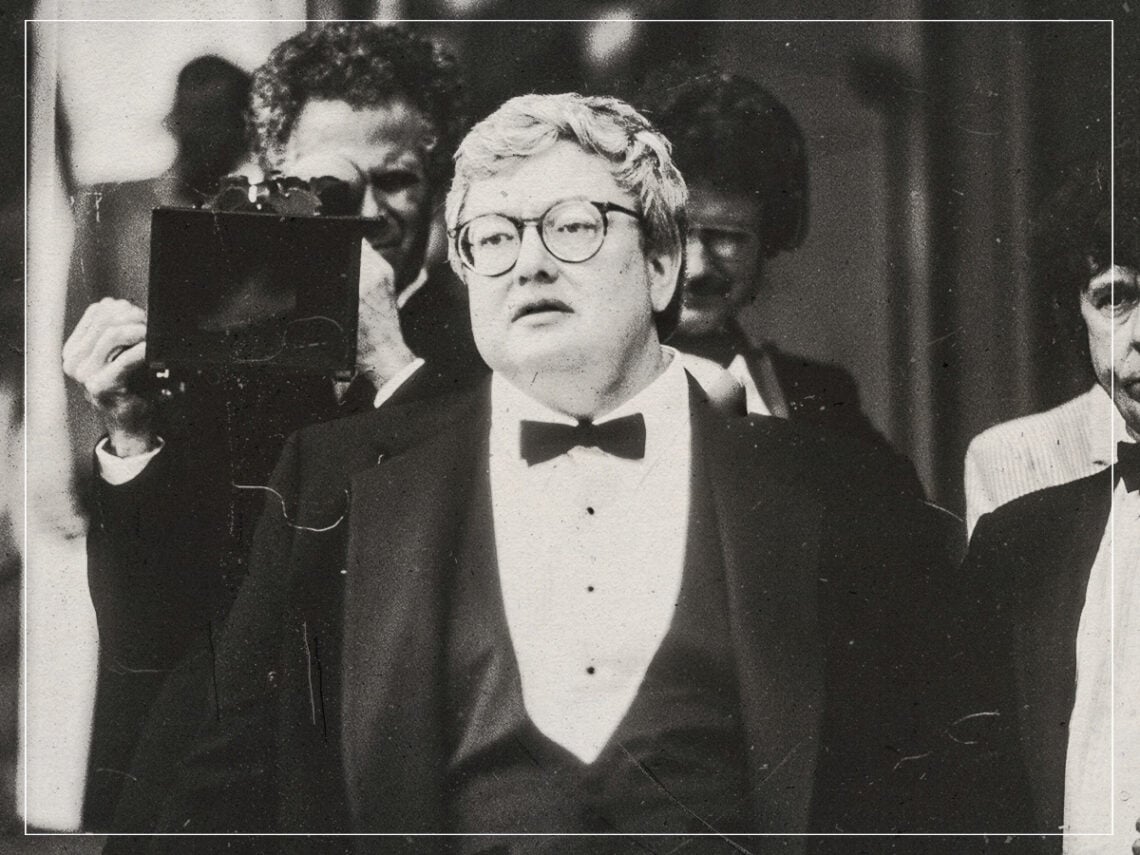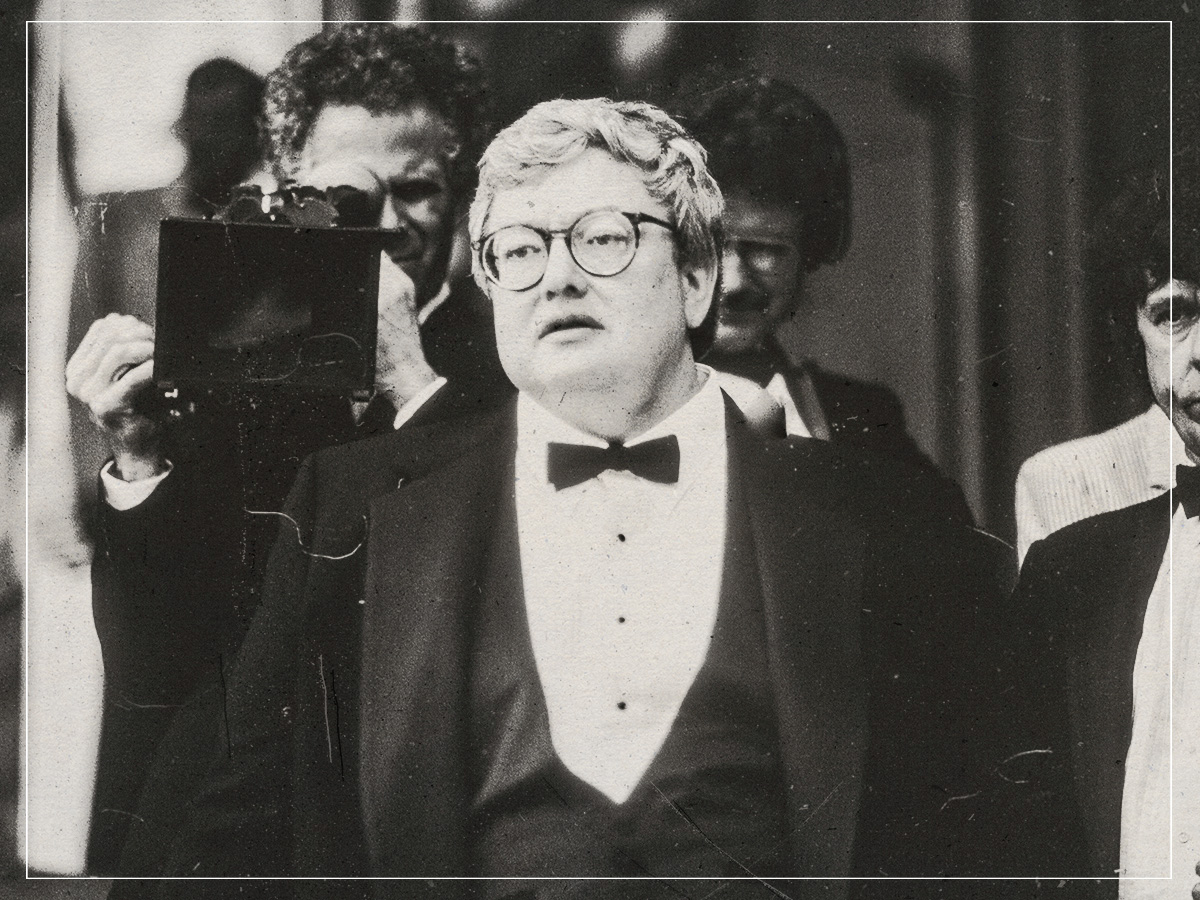
(Credits: Far Out / Thomas Hawk)
Mon 15 September 2025 17:45, UK
Roger Ebert was a legendary film critic, precisely because he was unafraid to hold back, writing conversationally like he was just your mate who decided to pen you an impassioned essay about the film he’d just seen at the cinema.
He certainly would’ve thrived on Letterboxd, but instead, he had the Chicago Sun Times, which he began writing for during the 1960s, pioneering a style of somewhat informal yet compelling film criticism which opened many people’s eyes to the kinds of foreign and arthouse titles that they might not have heard of otherwise. With that being said, he wasn’t scared to be completely honest if he thought a film was absolutely dreadful, and there were certainly genres that Ebert favoured more highly than others.
Horror was never one of Ebert’s favourites, and he often slated certain titles from the grisly genre, sometimes unfairly. Blood-soaked gore fests just weren’t for him, it seemed, and his favourite scary movies reflect this – he liked something that seemingly had a bit more substance. Now, that’s not to say that a splatter-filled, nasty little slasher doesn’t have substance, but when you look at the only horror movies that Ebert handed his full four-out-of-four stars to, you’ll see what I mean.
He liked a lot of early horror movies from the 1920s and ‘30s, like the stunning German Expressionist gothic masterpiece, The Cabinet of Dr Caligari. A haunting and surreal look at mental illness in a post-war landscape riddled with guilt and darkness, it wouldn’t be an overstatement to say that it acts as a foundation for the entire fucking history of horror cinema, introducing viewers to a cinematic world where psychological trauma created real fear, with director Robert Weine conveying this through striking set design.
Ebert was also a huge fan of Cat People, the classic 1942 movie about people who find themselves turning into black panthers when they’re in the mood, as you do. It’s quite a bold concept for a time when sexuality was hardly explored on the big screen due to censorship, and Ebert thought it managed to strike all the right notes. “Cat People is constructed almost entirely out of fear. There wasn’t a budget for much of anything else,” he wrote.
Elsewhere, he liked 1928’s The Man Who Laughed, which, while not explicitly being a horror movie, features one of the most haunting smiles in cinema history. Ebert was convinced that it fell into the category; I mean, just look at that smile – it literally inspired the Joker.
Early horror – especially those without sound – seemed to attract Ebert, perhaps because these films didn’t rely on flashy shocks and explicit gore. It was atmosphere that proved to be the most important element, praising the “creepy, undeniable power” of 1925’s The Phantom of the Opera, for example. But what about more modern horror?
Ebert loved the pioneering Psycho, a true horror classic that changed the game when it was released in 1960. “What makes Psycho immortal, when so many films are already half-forgotten as we leave the theatre, is that it connects directly with our fears: Our fears that we might impulsively commit a crime, our fears of the police, our fears of becoming the victim of a madman, and of course our fears of disappointing our mothers,” he wrote.
Jaws and Alien also scored highly with Ebert, while the ever-controversial The Shining received top marks. While some critics were unimpressed with Kubrick’s foray into horror, Ebert thought the movie was fantastic, writing, “Kubrick delivers this uncertainty in a film where the actors themselves vibrate with unease.” Clearly, Ebert could recognise a good horror movie from time to time, but it was an occurrence that happened all too rarely.
Roger Ebert’s favourite horror movies:Nosferatu the Vampyre (Werner Herzog, 1979)The Cabinet of Dr Caligari (Robert Weine, 1922) The Shining (Stanley Kubrick, 1980) Cat People (Jacques Tourneur, 1942) Phantom of the Opera (Rupert Julian, 1925)Ugetsu (Kenji Mizoguchi, 1953) The Man Who Laughs (Paul Leni, 1928)Alien (Ridley Scott, 1979)Santa Sangre (Alejandro Jodorowsky, 1989) King Kong (Merian C. Cooper and Ernest B. Schoedsack, 1933) Jaws (Steven Spielberg, 1975) Dracula (Tod Browning, 1931) Peeping Tom (Michael Powell, 1960)Psycho (Alfred Hitchcock, 1960)Bride of Frankenstein (James Whale, 1935) Nosferatu (F. W. Murnau, 1922)
Related Topics

